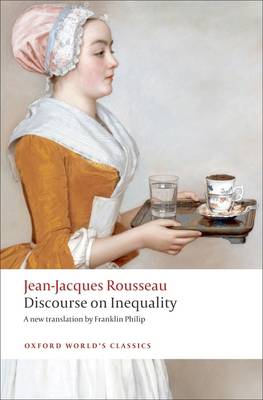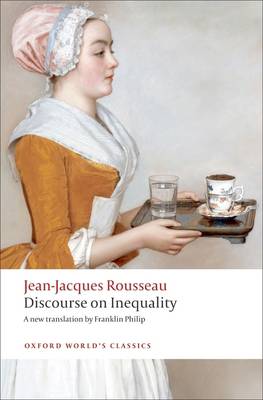
- Afhalen na 1 uur in een winkel met voorraad
- Gratis thuislevering in België vanaf € 30
- Ruim aanbod met 7 miljoen producten
- Afhalen na 1 uur in een winkel met voorraad
- Gratis thuislevering in België vanaf € 30
- Ruim aanbod met 7 miljoen producten
Zoeken
€ 12,95
+ 25 punten
Uitvoering
Omschrijving
In his Discourses (1755), Rousseau argues that inequalities of rank, wealth, and power are the inevitable result of the civilizing process. If inequality is intolerable - and Rousseau shows with unparalledled eloquence how it robs us not only of our material but also of our psychological independence - then how can we recover the peaceful self-sufficiency of life in the state of nature? We cannot return to a simpler time, but measuring the costs of progress may help us to imagine alternatives to the corruption and oppressive conformity of modern society.
Rousseau's sweeping account of humanity's social and political development epitomizes the innovative boldness of the Englightment, and it is one of the most provocative and influential works of the eighteenth century. This new translation includes all Rousseau's own notes, and Patrick Coleman's introduction builds on recent key scholarship, considering particularly the relationship between political and aesthetic thought.
Rousseau's sweeping account of humanity's social and political development epitomizes the innovative boldness of the Englightment, and it is one of the most provocative and influential works of the eighteenth century. This new translation includes all Rousseau's own notes, and Patrick Coleman's introduction builds on recent key scholarship, considering particularly the relationship between political and aesthetic thought.
Specificaties
Betrokkenen
- Auteur(s):
- Vertaler(s):
- Uitgeverij:
Inhoud
- Aantal bladzijden:
- 176
- Taal:
- Engels
- Reeks:
Eigenschappen
- Productcode (EAN):
- 9780199555420
- Verschijningsdatum:
- 26/07/2009
- Uitvoering:
- Paperback
- Formaat:
- Trade paperback (VS)
- Afmetingen:
- 127 mm x 196 mm
- Gewicht:
- 136 g

Alleen bij Standaard Boekhandel
+ 25 punten op je klantenkaart van Standaard Boekhandel
Beoordelingen
We publiceren alleen reviews die voldoen aan de voorwaarden voor reviews. Bekijk onze voorwaarden voor reviews.











